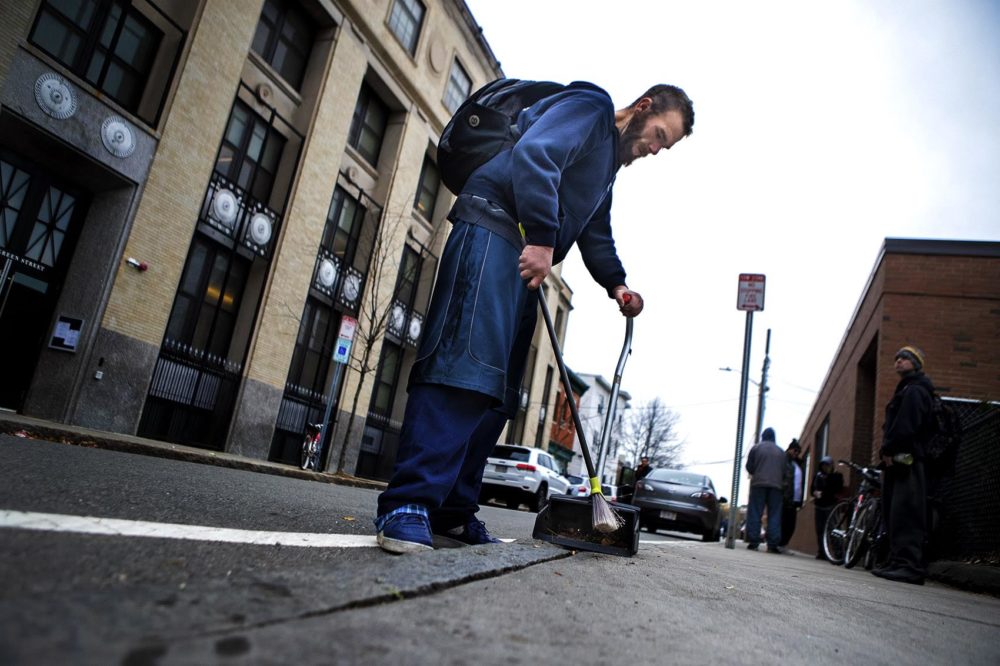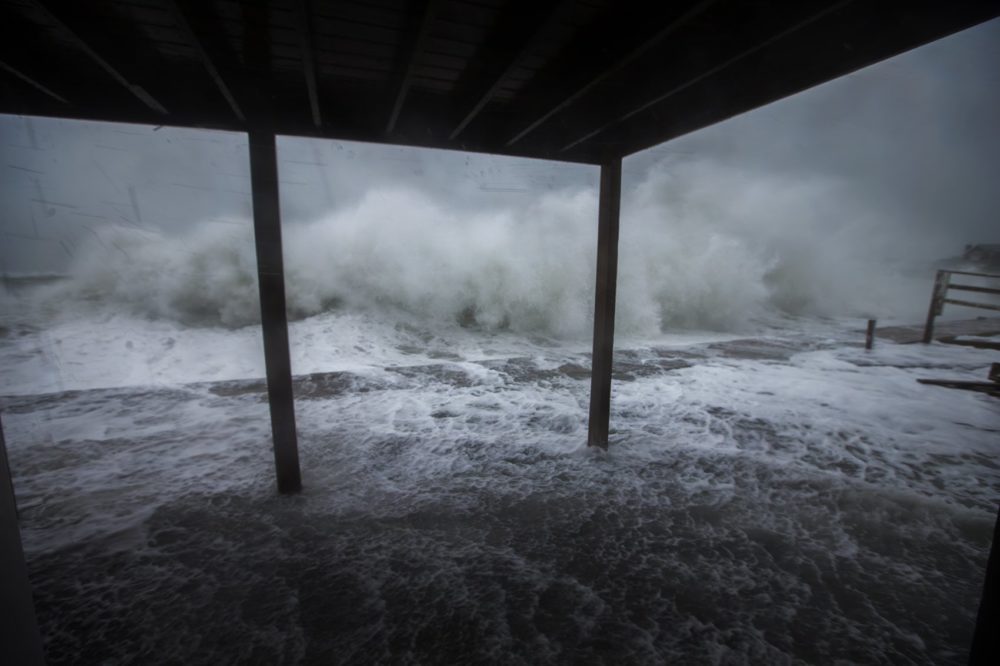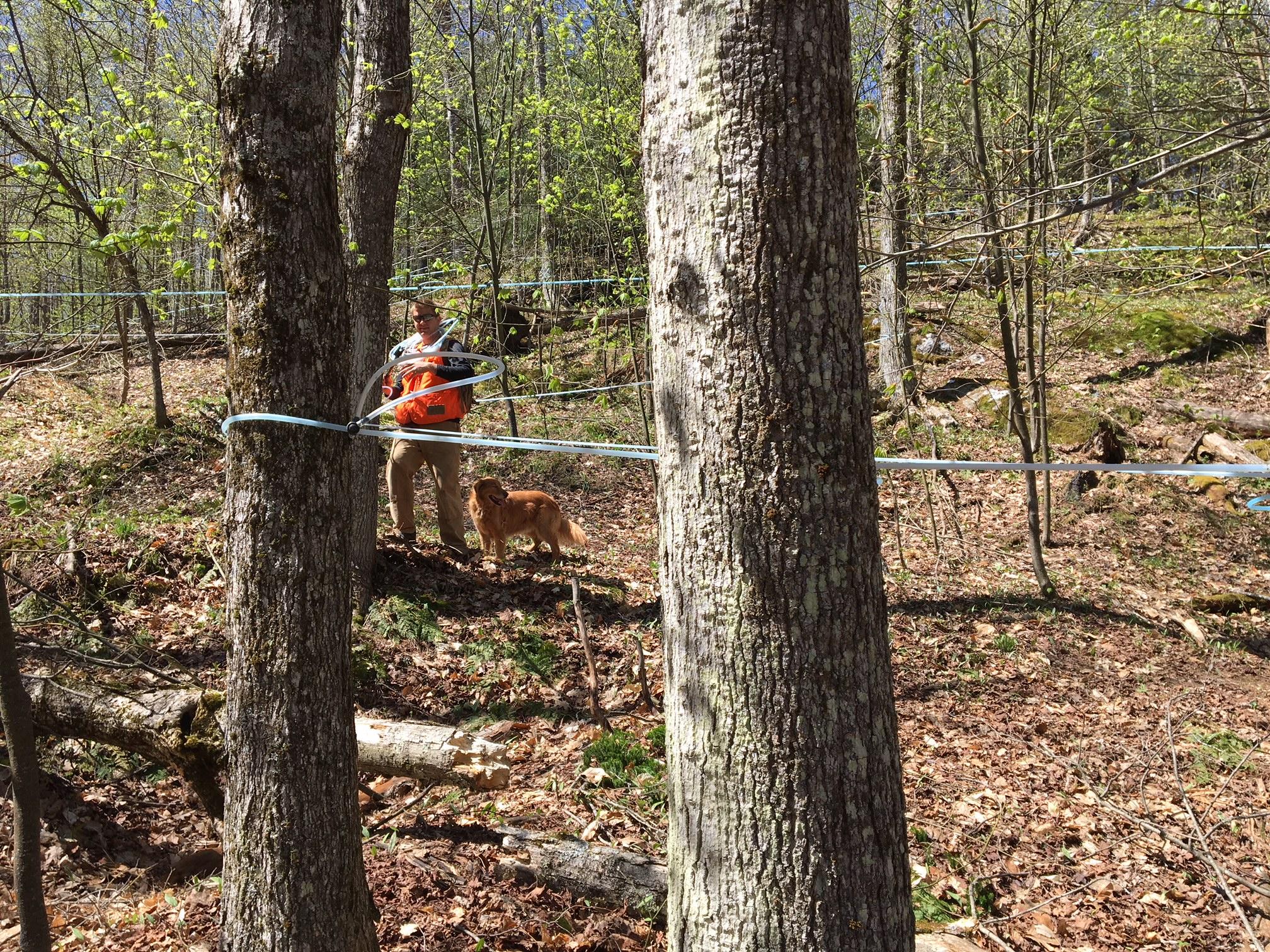Episode 123: Meth Use Compounding Opioid Crisis; Counting The Trees That Store The Carbon

This week, we explore the high drug overdose death rates in our region and why methamphetamine is a rising threat. Plus, we learn about why the Northeast is warming faster than other areas of the United States, and how trees and individuals could help reduce our carbon footprint. We also look at a close race for Secretary of State in New Hampshire. Finally, we discuss President George H.W. Bush’s ties to New England.
It’s NEXT.
Drug Overdose Rates High in New England
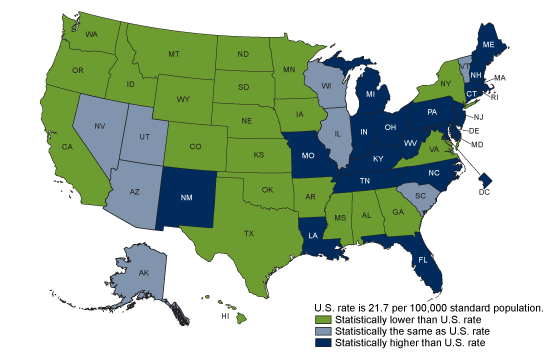
Age-adjusted drug overdose death rates, by state: United States, 2017. NCHS, National Vital Statistics System, Mortality.
New data from the National Center for Health Statistics show that the rate of drug overdose deaths rose from 2016 to 2017. All of the New England states, except for Vermont, have overdose death rates that are higher than the national average. We called up Dr. Holly Hedegaard from the National Center for Health Statistics Office of Analysis and Epidemiology to discuss this data.
Plus, we explore the emerging threat of Methamphetamine in Massachusetts. WBUR’s Martha Bebinger looks at the ways meth is twisting and compounding the opioid epidemic.
Climate Assessment Warns of Extreme Warming in Northeast
The Fourth National Climate Assessment, released on Black Friday, shows just how big the impact of climate change is, and will be, in this country. And the Assessment highlighted something interesting about the Northeast: our region is the fastest warming in all of the contiguous United States. So what’s going on?
We called Mary Stampone to find out. She’s the New Hampshire state climatologist, an Associate Professor at the University of New Hampshire and a co-author of the Northeast section of the Fourth National Climate Assessment. She told us about how climate change will affect our region.
Measuring the Role that Trees Play in Storing Carbon
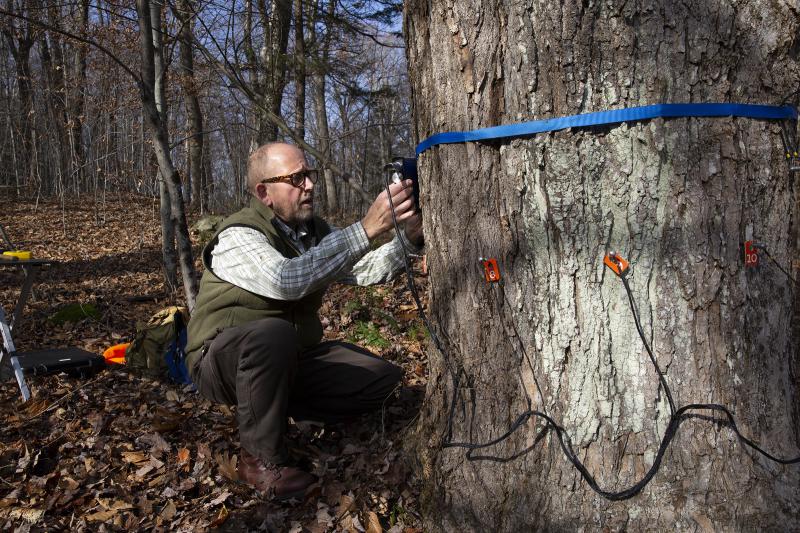
Forest pathologist Bob Marra demonstrates equipment used to internally scan trees. “If we’re going to look to forests as a way to sequester carbon, we should develop much more accurate estimates of how much carbon is actually sequestered,” Marra said. Photo by Patrick Skahill for Connecticut Public Radio
That Climate Assessment says forests play a key role in keeping our air clean. According to the report, America’s forests stored the equivalent of 11 percent of the country’s CO2 emissions over a 25 year period. That’s because when trees breathe they suck up carbon dioxide, release oxygen, and store that leftover carbon in their trunks. But as Connecticut Public Radio’s Patrick Skahill reports, how scientists determine the amount of carbon stored in a tree is a question open for debate.
Why Sugar Maples Need Snow
One of the iconic New England trees, the sugar maple, faces a difficult future with a changing climate. A new study from Boston University finds that the trees need snow to grow. Less snow means maples grow more slowly and store less carbon in the soil. As WBUR’s Barbara Moran tells us, as climate change reduces the amount of deep snow in New England, that spells trouble.
Individuals Think about Reducing Carbon Footprint
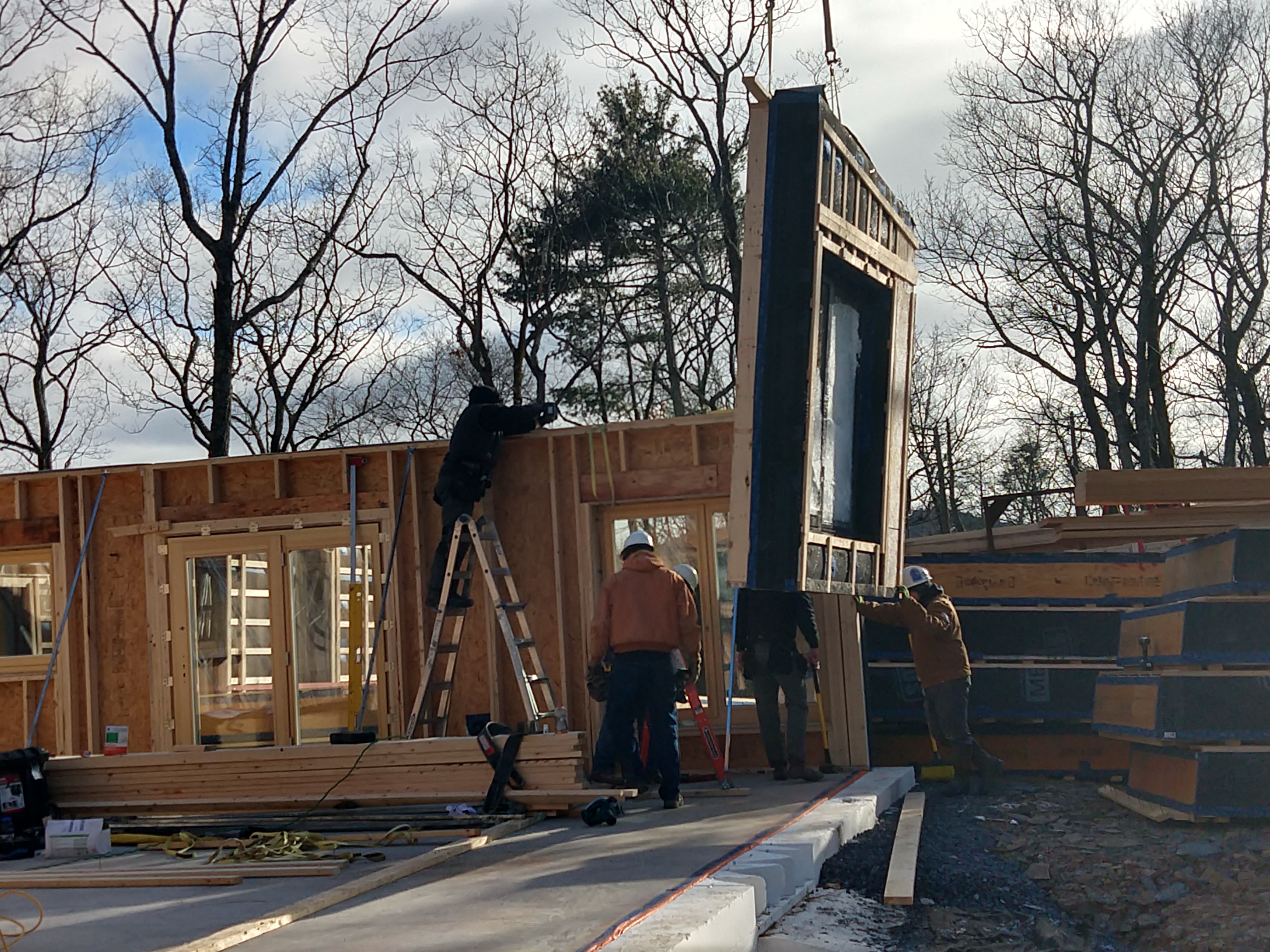
A wall section is lowered by a crane on to the foundation of a “passive house” manufactured by the Maine company Ecocor. Photo by Jon Kalish for NEXT
Are you as worried as we are yet about climate change? The scale of the problem can seem pretty daunting, even to those who dedicate their careers to documenting and combating climate change. Maine Public Radio’s Fred Bever went in search of some of them, and they said change can start at home.
New Hampshire’s Close Secretary of State Race Ends
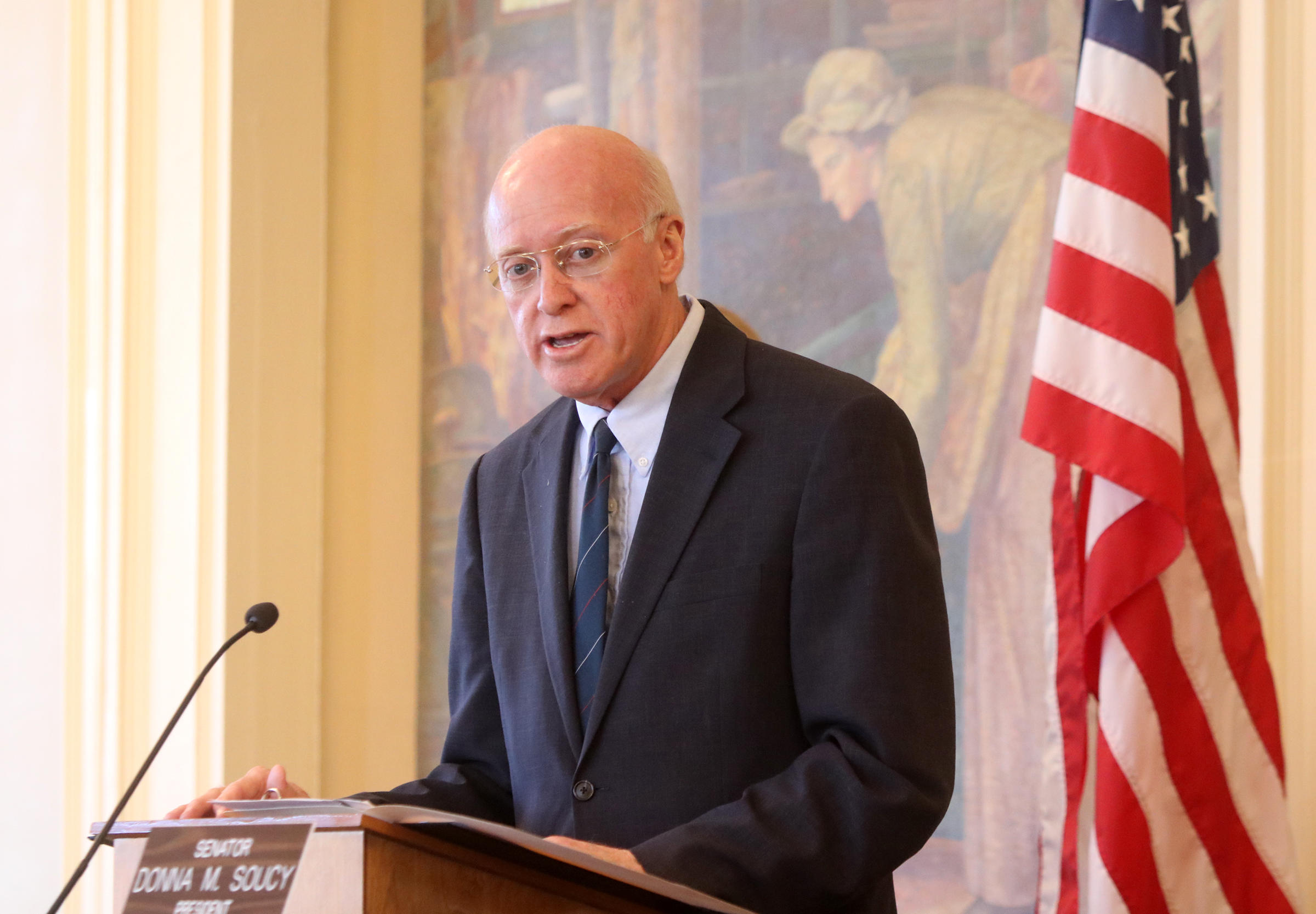
Bill Gardner survived the toughest challenge of his more than four decades as New Hamsphire’s Secretary of State. Photo by Allegra Boverman for NHPR
Why does the small state of New Hampshire have the first primary in the nation? One of the main reasons is one man: Bill Gardner.
Gardner has been Secretary of State in New Hampshire for 42 years. But this week, Gardner faced his closest election yet after a strong challenge. He won his 22nd term by just 4 votes. NHPR’s Casey McDermott joined us to discuss why the race was so close.
Remembering George H.W. Bush’s Connections to New England
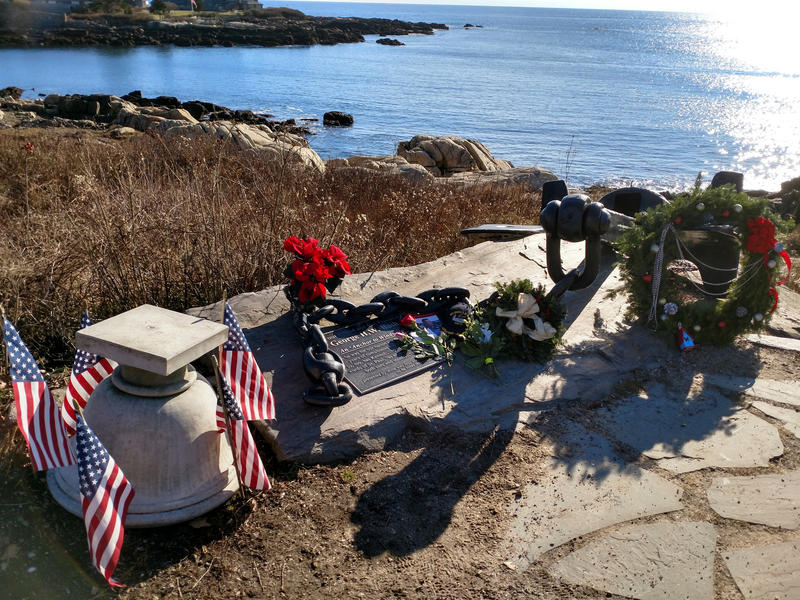
Flowers and wreaths adorn a naval anchor honoring President George H.W. Bush on a bluff overlooking Walker’s Point in Kennebunkport on Saturday, Dec. 1, 2018. Photo by Irwin Gratz for Maine Public
George H.W. Bush, the 41st president of the United States, died at the age of 94 in his adopted home of Houston. But he was a New Englander. He was born in Milton, Massachusetts, he grew up in Greenwich, Connecticut, attended Phillips Andover Academy and Yale University, and visited his family’s retreat in Kennebunkport, Maine almost every summer of his life.
For more about Bush’s connection to Maine, listen to this piece from Maine Public’s Fred Bever. To listen to how Bush’s policies impacted Boston’s waterways, listen to this piece from WBUR’s Fred Thys.
We called up Jeffrey Engel to learn more about Bush’s connections to our region. He’s the author of multiple books about George H.W. Bush, including most recently When the World Seemed New: George H.W. Bush and the End of the Cold War. He is also the Director of the SMU Center for Presidential History.
Photo at the top of the page: Michael sweeping up cigarettes and other debris from the sidewalk outside the ACC Needle Exchange in Central Square in Cambridge. Photo by Jesse Costa for WBUR
About NEXT
NEXT is produced at Connecticut Public Radio
Host: John Dankosky
Producer: Lily Tyson
Digital Producer: Carlos Mejia
Senior Director: Catie Talarski
Contributors to this episode: Martha Bebinger, Patrick Skahill, Barbara Moran, Fred Bever, Casey McDermott
Music: Todd Merrell, “New England” by Goodnight Blue Moon, “Sagittarius by Moonlight” by The Olympians, “This Is What You Do” by Gemma Hayes and “New Slang” by The Shins
—
New to NEXT? You can find every episode or one you missed within our archives.
We appreciate your feedback! Send critiques, suggestions, questions, and ideas to next@wnpr.org. Follow us on Facebook and Twitter. Help us spread the word! If you like what you hear, rate and review us on iTunes.

